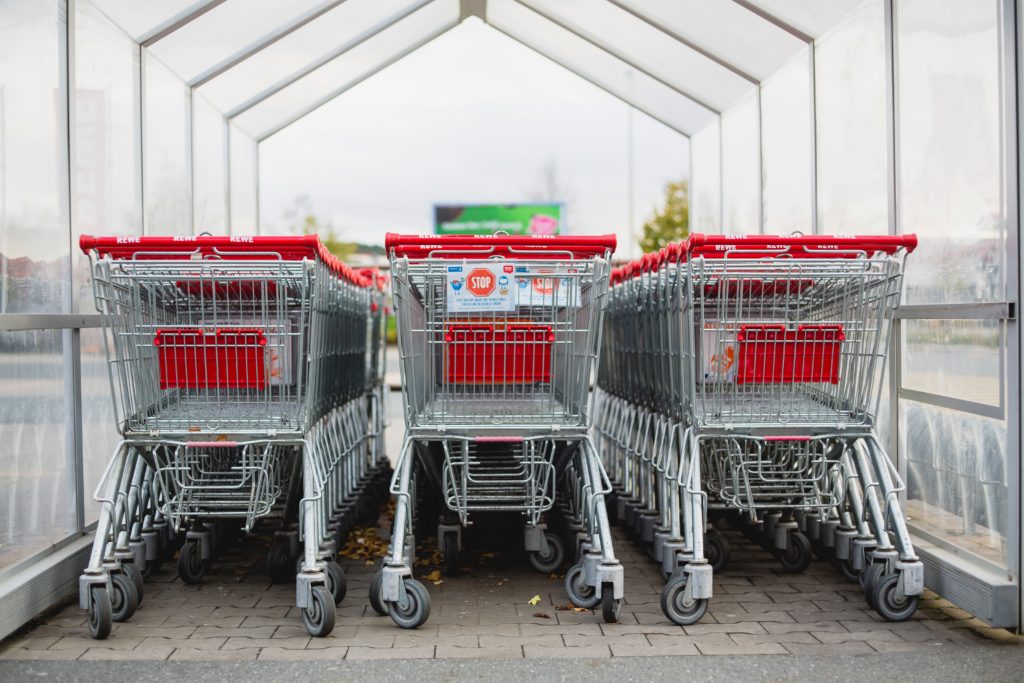A slip and fall accident can happen at a supermarket for a variety of reasons – such as leaky refrigeration equipment in the frozen food section, spilled or broken bottles, food on the ground, or wet floors in general. Regardless of how the fall happened, whether or not the supermarket is at fault will depend on two main factors. The first is whether a store employee created a hazardous condition which caused you to fall. The second is – if the hazardous condition was created by someone who does not work at the store – did the hazardous condition exist for a long enough time so that it should have been noticed and cleaned up by the store’s staff.
How Liable Are Supermarkets For Injuries Due To The Negligence Of Their Staff or Policy?
As a shopper at a supermarket you will generally be considered what is known as a “business invitee” to that store. This means the supermarket owes you, as their customer, an affirmative duty to protect you from both known dangers and those dangers which can be discovered with reasonable care. What are examples of known dangers? These are hazardous conditions created by the employees at the store, such as an employee dropping something on the ground, negligently stacking drink bottles or soda cans that spill on the floor, etc. When a supermarket employee creates the dangerous condition that causes you to fall the store is at fault for it. How can you prove a store employee caused the dangerous condition? By witness accounts, video that the supermarket retains of your fall, the supermarket’s own incident report, showing there was defective store equipment leading to slippery floors, or the circumstances of the accident which can suggest that it was caused by a store employee.
What Are Examples Of Hazards That Can Cause Injuries?

What are examples of dangers that can be discovered with reasonable care? These are hazards usually caused by customers at the store, or sometimes by 3rd party independent contractors. If a customer spills liquid or drops food on the floor, and you can show this liquid or food was on the floor for a long enough time that a supermarket employee should have noticed this and cleaned it up, the supermarket can be held liable for its staff not cleaning it. This again can be proven by video evidence, witness accounts, the supermarket’s incident report, or the condition of the food on the floor suggesting it had been on the ground for a while. Evidence that a supermarket employee recently checked the area you fell shortly before your fall, and likely missed the substance you fell on during that fall, can also help prove liability. The length of time the hazard must be on the floor and the evidence needed to prove negligence against the supermarket will vary case by case.
If there was an independent contractor – such as a floor cleaning service – whose negligence caused your fall, you may have an independent claim against them as well.
The supermarket may attempt to claim it was not liable because the hazard was open and obvious, and therefore one you should have noticed. Whether this is true is also determined on a case by case basis. Even if you are found to be partially at fault for your fall, in many states such as Pennsylvania you can still recover as long as you are found to be less than 51% at fault. Instead any verdict rewarded to you by the jury will be reduced by the percentage you are found to be at fault.
Beyond liability you will also need to prove damages in order to recover against the store. This includes medical treatment you needed, lost wages if your injury caused you to miss work, unpaid medical bills, etc. This can be proven through your medical records, medical experts testifying about your injuries, tax returns, and medical billing.
The Thistle Law Firm is experienced at handling supermarket slip and fall claims. If you or a family member were injured by a slip and fall accident at a supermarket, the attorneys at the Thistle Law Firm are here to take your call at 215-525-6824.

